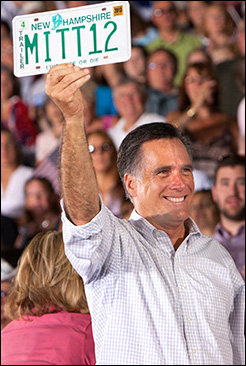By Jim Ellis
March 16, 2022 — Alabama US Rep. Mo Brooks (R-Huntsville) was one of the first of the 2022 candidates who former President Trump endorsed, but now it’s possible that the six-term congressman may not even qualify for the US Senate runoff.In the battle to replace retiring Sen. Richard Shelby (R), a McLaughlin & Associates poll conducted over the weekend (March 10-13; 500 likely Alabama Republican primary voters, live interview & text) finds a new leader in the Senate race with the original favorite dropping to a poor third-place standing.
The McLaughlin ballot test sees former “Black Hawk Down” pilot and Alabama defense business owner Mike Durant leading former Business Council of Alabama President & CEO Katie Britt, 34-32 percent, with Rep. Brooks trailing with just 18 percent support.
Recently, Trump publicly criticized the Brooks campaign, and reports suggest the former president feels he may have endorsed too early in this race. Previous anecdotes also indicated he was very impressed with Britt, Sen. Shelby’s former chief of staff, after meeting with her.
Perhaps the worst news for Brooks within the McLaughlin results are the favorability ratings. While Durant and Britt recorded a positive index of 52:14 percent and 49:21 percent, respectively, the northern Alabama congressman, who was defeated in the 2017 special US Senate election, posts an upside-down 37:45 percent favorable to unfavorable ratio.
Trump, however, is still favorably viewed in Alabama. In 2020, the Yellowhammer State was his eighth best performance electorate, where the then-incumbent president claimed 62.0 percent of the vote. In the current McLaughlin survey, Trump scores a whopping 89:10 percent positive rating for the job he did as President.
McLaughlin also tested the GOP gubernatorial primary in which incumbent Kay Ivey is facing a challenge from real estate developer Tim James, son of former Gov. Fob James, and ex-US ambassador to Slovenia, Lindy Blanchard. The ballot test finds the governor winning the May 24 primary outright, posting a wide 60-13-10 percent margin against James and Blanchard, respectively.




